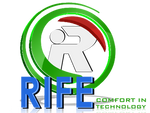The Future of Healthcare: Medical Kiosks Revolutionizing Patient Experience
Introduction
The healthcare industry is evolving rapidly, and technology is at the forefront of this transformation. One of the most significant innovations in recent years is the advent of medical kiosks. These self-service devices are streamlining patient check-ins, reducing administrative burdens, and improving the overall efficiency of medical offices and hospitals. Medical kiosks offer a seamless experience for both patients and healthcare providers, making them an essential addition to modern medical facilities.
What Are Medical Kiosks?

Medical kiosks are self-service terminals that allow patients to check in for appointments, update personal information, make payments, and perform various other healthcare-related tasks without needing direct interaction with medical staff. These kiosks are designed to enhance the efficiency of healthcare facilities by automating repetitive administrative processes. From standalone machines in hospital lobbies to wall-mounted check-in kiosks in medical offices, these devices are becoming a common sight in healthcare settings.
Benefits of Medical Kiosks

1. Improved Check-In Efficiency
A medical office check-in kiosk significantly reduces wait times by allowing patients to check in electronically, rather than waiting in long lines at the reception desk. This speeds up the process and ensures a smooth flow of patients.
2. Reduced Administrative Burden
By automating tasks such as registration, insurance verification, and payment processing, medical kiosks free up front-desk staff to focus on more critical responsibilities, improving overall office efficiency.
3. Enhanced Patient Experience
Patients appreciate the convenience of using a check-in kiosk medical solution, as it eliminates unnecessary paperwork and allows them to check in at their own pace, reducing stress and frustration.
4. Increased Accuracy and Data Security
Manual data entry is prone to errors. Medical kiosks ensure that patient information is captured accurately, reducing mistakes in personal details, insurance information, and medical history.
5. Contactless and Hygienic Solutions
With the rise of infectious diseases, reducing physical contact in hospitals is a priority. Kiosks in hospitals provide a safer alternative by enabling contactless check-ins, thus minimizing exposure to germs.
6. Cost Savings for Healthcare Facilities
By automating administrative tasks, hospitals and medical offices can cut labor costs and allocate resources more effectively, leading to long-term savings.
Applications of Medical Kiosks

1. Hospital Check-In Kiosks
A hospital check-in kiosk allows patients to register for appointments, update medical records, and complete necessary paperwork before seeing a doctor. This streamlines the check-in process and reduces congestion in waiting areas.
2. Medical Office Check-In Kiosks
In smaller healthcare settings such as clinics and private practices, a medical office check-in kiosk can handle patient registration and insurance verification efficiently, ensuring a smooth workflow.
3. Emergency Room Kiosks
Emergency rooms experience high patient volumes. A hospital kiosk can help patients provide essential details before being seen by a medical professional, expediting care for critical cases.
4. Prescription and Payment Kiosks
Beyond check-ins, some medical kiosks allow patients to make payments, refill prescriptions, and even consult a virtual doctor for minor issues.
5. Telemedicine Integration
Medical kiosks are increasingly being integrated with telemedicine services, allowing patients to consult with healthcare providers remotely, further improving accessibility and convenience.
The Role of Kiosks in Hospitals
Hospitals worldwide are adopting kiosks in hospitals to improve patient flow and reduce bottlenecks at check-in counters. Hospital kiosk design is tailored to accommodate different needs, including multilingual support, ADA compliance, and touchless interfaces for enhanced accessibility.
1. Self-Check-In
A kiosk for hospital check-in enables patients to handle their own registration, saving time for both patients and staff.
2. Wayfinding and Navigation
Many large hospitals now incorporate hospitality kiosks that provide maps and directions, helping visitors find their way without needing assistance.
3. Health Screening Kiosks
Some hospitals have implemented kiosk medical solutions that perform preliminary health screenings, such as measuring temperature and assessing symptoms before a patient meets with a doctor.
The Future of Medical Kiosks
1. AI-Powered Smart Kiosks
Future medical kiosks will incorporate artificial intelligence (AI) to offer predictive analytics, personalized healthcare recommendations, and even virtual medical assistants.
2. Biometric Authentication
Facial recognition and fingerprint scanning will enhance security and provide a seamless, secure check-in process.
3. Integration with Electronic Health Records (EHRs)
Advanced kiosks will sync with EHR systems, allowing for real-time updates and instant access to patient history.
4. Expansion into Remote Healthcare
With the rise of remote healthcare, hospital kiosks will play a crucial role in bridging the gap between patients and providers, offering telehealth consultations and remote diagnostics.
Enhancing Productivity with Medical Kiosks
Medical office check-in kiosks not only benefit patients but also enhance workplace productivity. By reducing paperwork and automating routine tasks, healthcare staff can dedicate more time to patient care. Additionally, hospital kiosk designs ensure that workflows remain uninterrupted, leading to a more efficient healthcare environment.
Conclusion
The adoption of medical kiosks is transforming the healthcare landscape. Whether in hospitals, clinics, or private practices, these innovative solutions are streamlining patient experiences, improving efficiency, and reducing costs. As technology advances, we can expect even greater integration of hospital kiosks, telemedicine, and AI-driven healthcare solutions. Investing in medical kiosks today is a step toward a more efficient, patient-centered future in healthcare.

